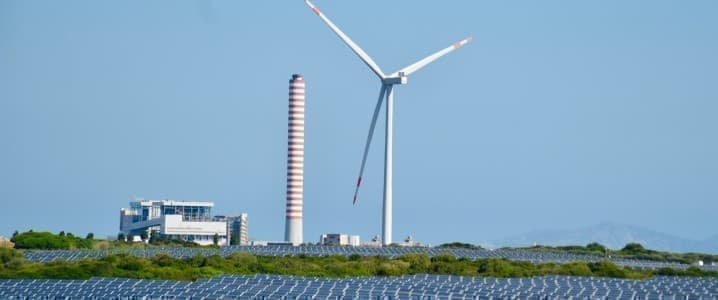Back in 2021, Texas passed two laws that restricted the state from doing business with companies deemed hostile to the fossil fuels and firearm industries. The Lone Star State barred pensions and other state entities from investing in approximately 350 funds that promote environmental, social and governance, aka ESG investing, claiming that ESG investing does not act in the best financial interests of their clients.
To wit, the Republican-leaning state banned Wall Street giants Citigroup Inc., BlackRock Inc., Barclays Plc and members of Net Zero Banking Alliance, saying ESG is “…just a hate factory.” The anti-ESG movement has since gained traction, mostly targeting financial services like banks, pension funds and asset managers, as well as the energy sector.
And now a new report by GlobalData reveals how the U.S. has become the epicenter of a rising tide of anti-ESG sentiment across the globe. The report points to a Pleiades Strategy tracker that reveals that a total of 370 anti-ESG bills were submitted to the legislatures of 40 U.S. states between 2021 and 2024.
GlobalData notes that, whereas few of those bills were signed into law, this does not signify that the anti-ESG movement has weakened. Indeed, an analysis by Ropes & Gray found that anti-ESG bills filed in 2024 enjoyed a significantly higher rate of success than those filed in prior years, indicating that the architects of these bills are becoming more effective at drafting legislative challenges.
Not surprisingly, the anti-ESG movement has gained massive momentum since the re-election of Donald Trump as U.S. President.
Trump has rolled back many climate action policies by the previous administration, taken aim at DEI policies and passed executive orders banning ESG investing. Trump’s One Big Beautiful Bill (OBBBA) has rolled back many clean energy credits enacted by former President Joe Biden under the Inflation Reduction Act (IRA) of 2022. Whereas OBBBA did not outright cancel the Section 45V clean hydrogen production tax credits as earlier feared, it did accelerate the deadline for projects to begin construction to be eligible for the credit, bringing the deadline forward to December 31, 2027, from January 1, 2033, as originally envisioned in Biden’s Inflation Reduction Act (IRA) of 2022.
Trump’s anti-climate actions are similar to his stance in his first term when he unraveled more than 100 climate policies. There are estimates that nearly $28 billion-worth of wind, solar, EV and battery projects have been delayed or cancelled since Trump took office, with a potential 19,000 jobs chopped.
“Since President Trump’s re-election in November 2024, the efforts of the anti-ESG movement have ratcheted up, and all companies (not just those in the financial services industry) lie within the movement’s scope,” the GlobalData report states. “Trump has unravelled much of the previous administration’s climate action policies, passed executive orders banning ESG investing and taken aim at DEI policies.”
Meanwhile, efforts by the European Union to simplify its regulatory landscape have frequently seen the bloc slide towards anti-ESG, with growing right-wing populism bolstering climate skepticism across the globe. International markets have opposed advancing ESG standards through initiatives like the Sustainable Finance Disclosure Regulation (SFDR) and European Green Deal that enforce sustainability criteria by requiring disclosure of ESG-related risks. GlobalData has predicted that the anti-ESG movement will ultimately impact companies across all industries, including institutions and other entities previously considered to be fully independent.
Not surprisingly, Big Oil companies have been scaling back their clean energy investments. Last year, oil and gas giant Exxon Mobil Corp. (NYSE:XOM) announced that it will not move forward with one of the world’s largest low-carbon hydrogen projects if the federal government failed to provide tax incentives for natural gas-fed facilities. Current guidelines provide incentives for projects that produce “green” hydrogen by using water and renewable energy, but Exxon wants them extended to”blue” hydrogen from gas by trapping carbon emissions. That’s an interesting take because Exxon CEO Darren Woods previously expressed his doubts about the efficacy of carbon capture at lowering emissions because “…the technology works for high concentration streams of gases but is too expensive for low concentration streams.”
BP Inc. (NYSE:BP) has unveiled a less aggressive decarbonization strategy that entails (1) a slower decline in upstream investments and scrapped former plans to shrink refining; (2) focus more on higher-margin hydrogen and biofuels as well as offshore wind; and (3) higher spending in both oil and gas as well as low-carbon.
According to the company, the new strategy will offer higher shareholder returns, especially critical to the company after it severed ties with Russia’s Rosneft. BP’s nearly 20% stake in Rosneft helped to add several billion dollars to its bottom line every year. Back in April, BP announced that it was abandoning its hydrogen ambitions in favor of liquefied natural gas (LNG) for transport. Then in July, the European oil major announced that it would exit the $36-billion green hydrogen production facility planned in Australia. BP has informed its Australian Renewable Energy Hub (AREH) partners that it will leave its role as the project’s operator and equity holder.
Shell Plc. (NYSE:SHEL) has revealed it had scrapped plans to build a low-carbon hydrogen plant in Norway citing lack of demand. Days later, Norway’s NOC Equinor ASA (NYSE:EQNR) announced similar plans, “We haven’t seen the market for blue hydrogen materialize and decided not to progress the project,” a Shell spokesperson told Reuters.
By Alex Kimani for Oilprice.com
More Top Reads From Oilprice.com
Read this article on OilPrice.com



Leave a Comment
Your email address will not be published. Required fields are marked *